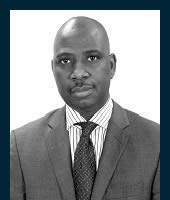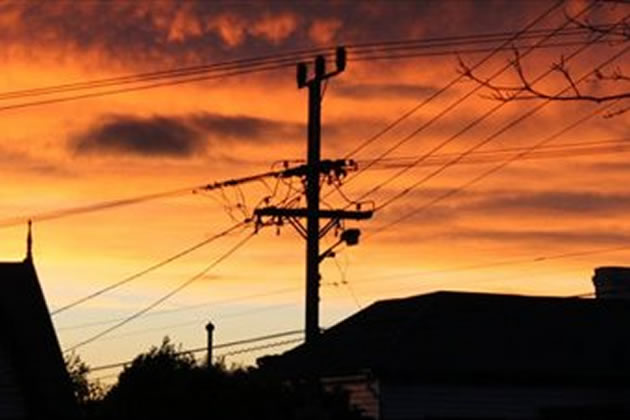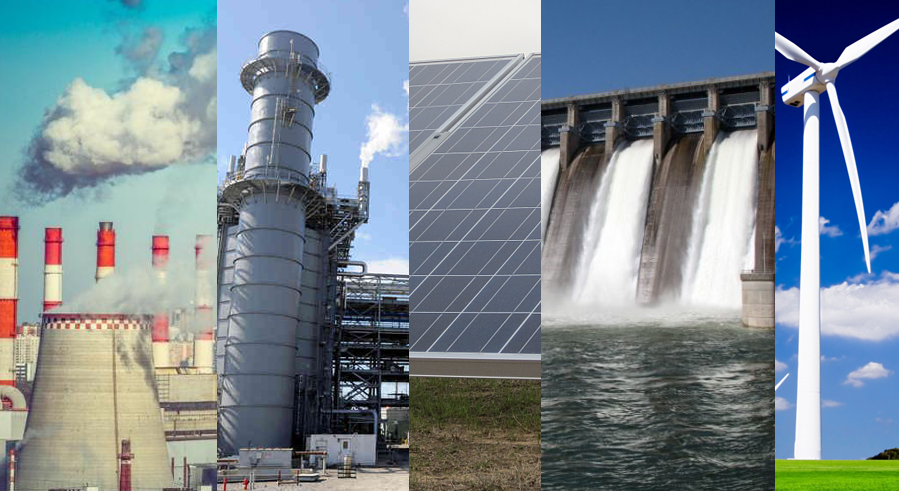The draft mini-grid regulation by the Nigerian Electricity Regulatory Commission has triggered criticism by potential investors into these off-grid power solutions for communities, estates and industrial clusters. Investors fear that Distribution Companies might take over their assets or price them out of their market share. In this interview, Mr. Adetunji Adeyeye of the Association of Nigerian Electricity Distributors reveals that there is another side to the story. Adeyeye shares his views on DisCo’s expansion plans and payments of compensation to mini-grid operators.
Adetunji Adeyeye, Representative, Association of Nigerian Electricity Distributors: I am going to speak as a person who has worked in the power sector, especially from the DisCo’s [i.e. distribution company’s] end. Certainly, just as the Minister of Power has said, one of the sure ways to solve Nigeria’s power problem is through incremental power programmes. It is the only way we can really speed up increase in power generation. Incremental power entails small pockets of power generation here and there, adding up to so much power generation. Essentially, the Mini-Grid Regulation speaks to generation by incremental power – which is what the regulation seeks to achieve. If we get the regulation right, we would have improvements in power generation generally.
Nigeria Energy Future, NEF: So, what is your take on the mini-grid regulation?
Adeyeye: It’s a difficult one, if I have to speak openly and freely. First, one has to look at the goal behind the regulation. Is the goal to get more power? If so, the regulation should be looked at in such a way that if it is eventually adopted it would actually support getting more power. But right now, there are concerns from both sides: from the DisCos, and also from the investors who would be the independent power producers.
The issues of concern to the DisCos would be that, if the mini-grid regulation is so relaxed that it allows for too many independent power producers [IPPs, hereafter used interchangeably with mini-grid operators] all over the place; how would we ensure that, when DisCos want to expand their own distribution, they won’t be short-changed for having conceded to the operations of IPPs.
The regulation as it is now, or as it is being proposed, gives too much power to IPPs that they can simply just register and commence operation without really getting a proper permit or license. All that an IPP generating between 100 KW and 1 MW needs to do is have an agreement with the community, and produce some documentation to NERC (documents on land, infrastructure etc.), without any serious scrutiny or technical analysis. If the regulation is proposed that way, it then creates a situation in which there are so many people doing whatever they want and possibly making more money than the DisCos at a different tariff. As you would see, the tariff that the mini-grid energy producers would eventually charge communities would be approved by NERC. And of course, communities will be willing to pay higher tariffs since they do not have access to power anyway. The result of this would be different tariffs, with DisCos distributing at one price and the IPPs riding on the difficulty of unserved areas to make more money; even when DisCos have in fact put in more investments than the IPPs.
The second concern is about the compensation payable, when a DisCo wants to expand its network within, say, five years of commission of a mini-grid within the former’s area of concession. DisCos are not too sure about how such compensation frameworks are going to work out. Before NERC finalises the regulation, there has to be more clarity on this, because nobody would want to invest more or expand their distribution network knowing that in future they are tied down by the issue of compensation. For example, if a DisCo decides to expand into an area being operated by a mini-grid power producer, the draft regulation says that the DisCo has to pay for the IPP’s installations, the cost of capacity amongst others, for some months. But really, cost construction can be subjective. For instance, the mini-grid operator might say, oh, this thing cost me 700 million dollars, whereas, if a DisCo were to actually quantify doing the same thing, it could have cost less.
Apart from tariff methodology and compensation, the regulation says that NERC provides for a tripartite contract between the IPPs, NERC, and the community. As one of the preconditions for the IPP to set up its mini-grid, it needs to enter an agreement with the community about the feasibility of the installation, health and safety, and other issues. Such agreement leaves out DisCos, as there is no provision in the regulation to include DisCos in that agreement. And of course, the community’s interests are not necessarily the DisCo’s interests. This is an area of concern as well.
Another issue of concern is in the definition of underserved areas. In the policy, the definition of underserved areas is also quite unclear. Where, in Nigeria, is not underserved? Where, in Nigeria, do they get reliable/stable electricity? I am not sure that there is any, except maybe in estates served by IPPs.
NEF: But does NERC not have a definition of what underserved is?
Adeyeye: Yes, NERC does; and the definition is described as a distribution licensee’s network area with existing, but poorly supplied and non-functional, electricity distribution system. They get electricity for less than 24 hours in a whole week, where my mother lives. The situation is similar where I live. And so, it means that a DisCo may concede to a mini-grid operator in these areas. But the truth is that the situation is pretty much the same in many other areas. Because we have an abysmally low level of power generation in the country, virtually everywhere that is not unserved is underserved. What this means is that mini-grids operators are being given a regulatory leeway to be all over the network and the geographical concession areas of DisCos, and as such, no guaranteed return on investment for the latter, who may not be encouraged to invest more. DisCos would then have to worry about their concessional areas being poached by an independent power producer.
NEF: These concerns are quite noteworthy ones. Is there anything else you would like to add?
Adeyeye: I want to suggest that – and this is a personal opinion, not the view of the organisations I represent – that there has to be an express inclusion of limits on the number of mini-grid facilities in any DisCo’s jurisdiction or network.
NEF: Do you mean putting a cap on the number of mini-grid operators that may be permitted in a particular geographic location within which a DisCo’s concession area falls?
Adeyeye: Exactly. The draft mini-grid regulation permits IPPs to generate between 100 kw and 1 mw. That is a cap. The regulation can also put a limit and say, look, we don’t want more than “X” number of mini-grid operators in each DisCo’s concession area. This kind of limit should be included in the regulation because otherwise, it would push back the desire for investment in the industry, especially amongst DisCos. Even though mini-grids are desirable in the country to enable us achieve incremental power, like I already mentioned; in terms of the overall growth model for the industry, we need to ensure balance on both sides so that we do not kill one side [i.e. the DisCos] in order to open up opportunities to another [i.e. the IPPs].
As a country, having the mini-grid regulation is the way to go. It has worked in other climes like in South Africa, for instance, where the country generates about 30,000 MW of its 40,000 MW from an aggregation of mini-grids, and with only about 10,000 MW on the grid. But because we have a peculiar problem in Nigeria, with the DisCos – the way they were created, the privatization process, the infrastructures that were handed out to them etc. – the business assumptions were wrong from the beginning. So, the DisCos inherited very bad businesses, and to actually have them invest and also have hope of returns on investment, there needs to be some form of protection for the DisCos as well. Besides, there are also challenges in on-grid generation and transmission, which also affects DisCos’ businesses, as the end of the industry chain. But also, generation is actually different (i.e. from the GenCos) and in many cases, DisCos are shortchanged. Seriously, if I were a DisCo operator, I would also be thinking about investing in, or actually being, a mini-grid power producer myself. So, I then have investments in mini-grids, and also share in the benefits and profits as well. As a Nigerian citizen, I would also want to see DisCos penetrate into the mini-grid market, and become mini-grids in their own distribution network concession area. This way, they won’t have to miss out on opportunities on both ends; while still helping the country to achieve the same objective of incremental power.
This is the way to go. That way, there won’t be so much frustration, and it would just be a matter of driving business from both sides.
NEF: But I guess such mini-grid businesses of DisCos would have to operate as separate legal entities, and bound by the mini-grid regulations as well?
Adeyeye: Definitely.
NEF: Back to your suggestion on capping the number of mini-grids in a given geographic area; I wonder if South Africa – which you also cited – has such caps on their mini-grids?
Adeyeye: I don’t think that they do. And this is most likely because they are massively involved in renewable energy projects. Generally, around the world, renewable energy is favoured and no country would want to put a cap on renewable energy from a global policy and environmental point of view. In fact, many countries are moving away from fossil fuels into renewable-driven energy security. But here, I can tell you that many of the intending mini-grid operators would want to use gas.
NEF: Talking of compensation though, recent stakeholder consultations on the draft mini-grid regulations have shown that mini-grid developers are concerned as well, probably as much as DisCos are. The former’s concerns usually include the fear of investing and then having to sell out to a DisCo based on a compensation structure that may fail to account for costs and investments so far. What are your thoughts on this?
Adeyeye: Every investor has an investment plan. If an IPP wants to invest in an underserved or unserved area, with an understanding that a DisCo may acquire its operations after five years, then the investment plan has to take this consideration into account. As such, any power purchase agreement signed with the community being served will from day 1 give a return on investment which considers the costs of operating the mini-grid over time. So, I would expect the IPPs to plan for a break-even point of, at most, the third year. If you can start selling power in the first year, targeting break-even in the third year, by the fourth year you should already start making profits, and in the fifth year, you should be well into your profits. And then assuming that on-grid power generation prospects improve so much that a DisCo seeks to acquire the mini-grid, there would be no way that the IPP can lose out. We should not also forget that in Nigeria, as of today, we need – looking at global benchmarking – over 160,000 MW for our over 160 million citizens. But we are currently producing just a little over 3000 MW. The truth is mini-grid developers are entering into a market that is sure not to be saturated in the next 20 years. So, there is a huge area of investment that mini-grid developers are very much guaranteed of their returns on investment. And this is not just in low-income neighbourhoods. There are lots of unserved areas in the county with middle class people who are willing to pay so much for power supply, if only they can get access to electricity. These areas are usually in suburbs between large cities served by two DisCos. As a mini-grid, there shouldn’t be any hesitation to invest. Another example is in the case of some residential estates, where steady access to off-grid power is supplied to users at about 40 – 50 naira per kwh. This tariff is way higher compared to the average DisCo’s residential tariff of just over 20 naira per kwh. Although these off-grid tariffs may be generally high for many Nigerians, there is a strong group of middle class who can afford to pay for power as long as it is available to them. I see a flourishing market situation for the mini-grids.
NEF: On expansion plans, a number of mini-grid developers would rather prefer that disclosure of expansion plans by DisCos take a shorter time period than 5 years. The underlying logic is that socio-economic conditions are very dynamic, and so why don’t we have, say, annual expansion plans; such that as DisCos look at their annual budgets they can also publicly disclose which geographic locations they are looking to expand into?
I think asking for annual expansion plans from DisCos is like trying to create a pressure cooker situation in the industry. DisCos have a lot of issues to contend with: they have to deal with liquidity issues, feed in from power generation and transmission, their own capex, metering and all of that. The terrain is so complex that, DisCos typically draw up their capital investment plans for a period of about 5 years. Year-on-year capex plans are not feasible because things such as inflation, forex, amongst others have to be factored in. So you can’t be saying that I will spend 10 billion naira next year, or 10 billion naira next year. Even to start with, securing funds – which are not even gotten in Nigeria anyway as the Nigerian banks won’t give you such long term loans except at often very high interest rates– is another issue which makes short term plans difficult. DisCos usually have to look for investments and funds from abroad. You don’t expect a DisCo to be running around to secure funds each year or every two years, because even the cost of getting those funds is prohibitive on its own, as such capex planning has to be at least 5 years or more. Mind you, it’s in the capex that DisCos have to worry about what is doable in terms of horizon of expansion. You see, if the [mini-grid] regulation is fair [to both sides] and is clear enough, I think that all parties would know their limits and there would be fair play. A distribution licensee should not be seen as wanting to frustrate mini-grid investors just for the sake of frustrating them. However, I would say that if a DisCo wants to expand, it has to be done in the most transparent way, and also be regulatory compliant. It’s clear: IPPs and DisCos, even though they are on different sides of the business coin, are complementary. And to move the country forward, their objectives have to converge. With clear regulations, I don’t think that the number of years for notification of expansion plans by DisCos should be an issue at all.
Interviewer:
Emmanuel Taiwo
Research and Liaison Officer,
Alliance on Nigeria's Energy Future

Prince Adetunji Adeyeye is a Nigerian-Irish trained lawyer. With regards to energy matters, his experience includes advising on all aspects of project development and finance, power generation agreements, renewables, energy trading and dispute resolution. Mr Adeyeye currently works with the Association of Nigerian Electricity Distributors (ANED). Prior to this he was a Commercial Business Manager for the Ibadan Electricity Distribution Company (IBEDC).




